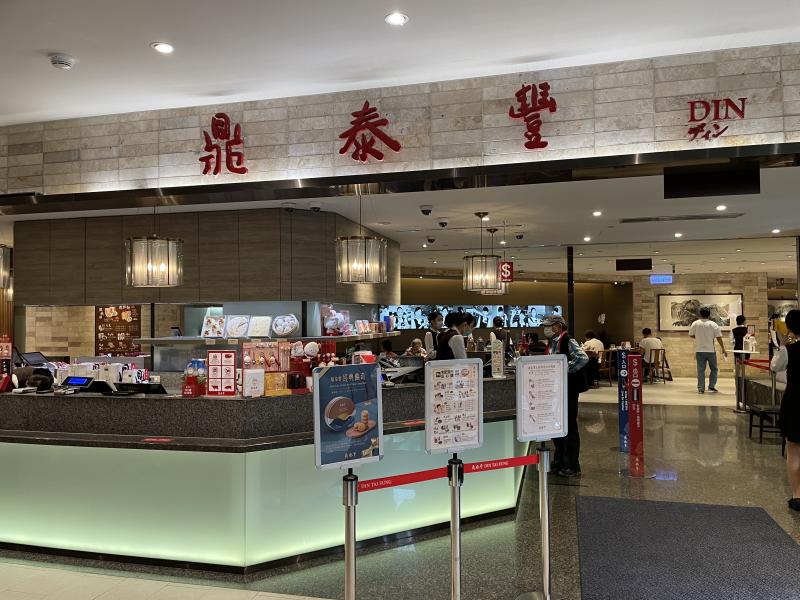Restaurant chain Din Tai Fung (鼎泰豐) today announced it is to close 14 stores in northern China, completely exiting the market by the end of October.
Beijing Hengtaifeng Catering Co (北京恆泰豐餐飲), which operates Din Tai Fung restaurants in northern China, said its 20-year operating license expires this year.
As the board was unable to reach a consensus on continuing operations, its 14 restaurants in the region are to close by Oct. 31, it said.

Photo: Yang Ya-min, Taipei Times
The company apologized for the inconvenience and disappointment the news would cause among its customers, and said it would provide compensation for its workers.
“We continue to be optimistic about the mainland market and will continue to keep an eye on trends and developments in the restaurant industry,” it said. “Hopefully we can work together again in the near future.”
Din Tai Fung opened its first Beijing location in 2004. It currently has 30 stores in China, in Shanghai, Beijing, Hangzhou, Shenzhen, Guangzhou, Suzhou, Xi’an, Wuxi, Qingdao and Xiamen.
The soup dumpling restaurant works with a different partner to operate restaurants in eastern China.
Additional reporting by Yang Ya-min

Sweeping policy changes under US Secretary of Health and Human Services Robert F. Kennedy Jr are having a chilling effect on vaccine makers as anti-vaccine rhetoric has turned into concrete changes in inoculation schedules and recommendations, investors and executives said. The administration of US President Donald Trump has in the past year upended vaccine recommendations, with the country last month ending its longstanding guidance that all children receive inoculations against flu, hepatitis A and other diseases. The unprecedented changes have led to diminished vaccine usage, hurt the investment case for some biotechs, and created a drag that would likely dent revenues and

Macronix International Co (旺宏), the world’s biggest NOR flash memory supplier, yesterday said it would spend NT$22 billion (US$699.1 million) on capacity expansion this year to increase its production of mid-to-low-density memory chips as the world’s major memorychip suppliers are phasing out the market. The company said its planned capital expenditures are about 11 times higher than the NT$1.8 billion it spent on new facilities and equipment last year. A majority of this year’s outlay would be allocated to step up capacity of multi-level cell (MLC) NAND flash memory chips, which are used in embedded multimedia cards (eMMC), a managed

CULPRITS: Factors that affected the slip included falling global crude oil prices, wait-and-see consumer attitudes due to US tariffs and a different Lunar New Year holiday schedule Taiwan’s retail sales ended a nine-year growth streak last year, slipping 0.2 percent from a year earlier as uncertainty over US tariff policies affected demand for durable goods, data released on Friday by the Ministry of Economic Affairs showed. Last year’s retail sales totaled NT$4.84 trillion (US$153.27 billion), down about NT$9.5 billion, or 0.2 percent, from 2024. Despite the decline, the figure was still the second-highest annual sales total on record. Ministry statistics department deputy head Chen Yu-fang (陳玉芳) said sales of cars, motorcycles and related products, which accounted for 17.4 percent of total retail rales last year, fell NT$68.1 billion, or

In the wake of strong global demand for AI applications, Taiwan’s export-oriented economy accelerated with the composite index of economic indicators flashing the first “red” light in December for one year, indicating the economy is in booming mode, the National Development Council (NDC) said yesterday. Moreover, the index of leading indicators, which gauges the potential state of the economy over the next six months, also moved higher in December amid growing optimism over the outlook, the NDC said. In December, the index of economic indicators rose one point from a month earlier to 38, at the lower end of the “red” light.